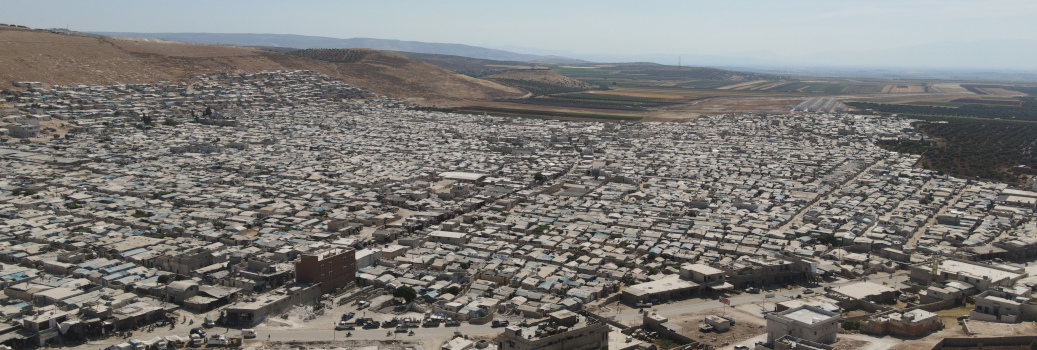World Humanitarian Day is a day to remember humanitarian workers alleviating suffering around the world and to reflect on persisting and rising humanitarian needs. The Middle East and North Africa (MENA) is one of the most impacted regions by violent conflict, drought, mismanagement of resources, and displacement. TIMEP’s newest fact sheet, authored by Nonresident Fellow Basma Alloush for World Humanitarian Day, highlights key humanitarian needs in MENA, the state of aid workers in the region, and recommendations for the future.
Over 50 million people are in need of humanitarian assistance across MENA, mostly concentrated in Syria and Yemen. Over 12 million people are internally displaced in their own countries, and more than six million are refugees, mostly displaced in neighboring countries. Medical care represents the most widespread need, with 37.5 million people requiring medical attention or medicine. More than 30 million people need food, while 32 million require access to clean water and sanitation facilities. Thirty-three million people across MENA need protection assistance—this includes children that need special protection and safe spaces, women that experience sexual and gender-based violence, and people exposed to other risks that directly impact their lives.
MENA represents one of the riskiest regions for humanitarian workers. One third of all attacks on aid workers globally took place in MENA in the first half of 2021. The overwhelming majority of those impacted are local staff. Syria is the third most dangerous country with almost 300 aid workers killed or injured, followed by Sudan and Yemen in seventh and ninth place, respectively. Parties to the conflict continue to disregard laws of armed conflict and evade their responsibility to respect humanitarian workers.
Despite the increasing needs and deterioration in security, there are efforts that parties to the conflict, donor governments, and non-governmental organizations can take to ensure that people’s needs are met and that frontline aid workers delivering assistance are protected.
- There are only political fixes to humanitarian challenges. Humanitarian crises often result from political instability and violent conflict. Although solutions to urgent humanitarian needs must be delivered, fixing humanitarian problems will not address the root causes of instability and could risk their reoccurrence in the future. As conflicts ravage the Middle East and North Africa, the underlying grievances are left to fester and grow. Resolving conflicts and finding sustainable durable solutions to political challenges is the only way to end the deepening humanitarian needs and allow the space for people to recover.
- Rapid and timely response to emerging humanitarian crises. The longer humanitarian crises persist, the more vulnerable people become and the harder it is to help them rebuild. Humanitarian crises, by nature, are emergency oriented and need to be addressed urgently. Donors and non-governmental organizations need to scale up their response to match the needs on the ground to prevent any further deterioration in living conditions.
- Aid workers are frontline respondents that must be protected. Over the past four decades, attacks on humanitarian workers have increased with the technological advancement of warfare. As the first respondents in all humanitarian emergencies, aid workers are on the frontlines risking their lives to deliver lifesaving assistance. Warring parties must respect international humanitarian law and not target aid workers.
Basma Alloush is a former Nonresident Fellow at TIMEP focusing on humanitarian trends and emerging issues in MENA.
